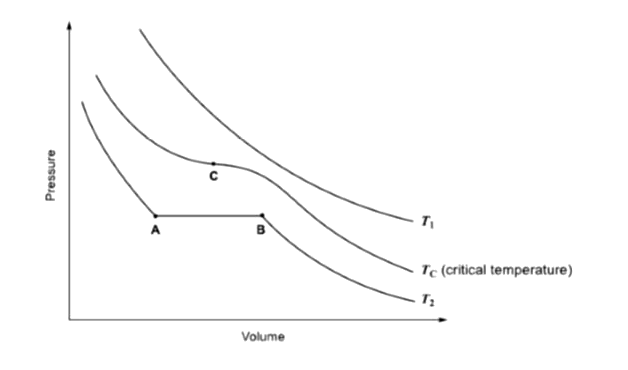The temperature beyond which a gas cannot be liquified even by increase in pressure is called _____.Solution in Odia
Step by step video & image solution for The temperature beyond which a gas cannot be liquified even by increase in pressure is called _____. by Chemistry experts to help you in doubts & scoring excellent marks in Class 12 exams.
Updated on:21/07/2023Topper's Solved these Questions
Similar Questions
Write the formula of Borax.
View SolutionCalculate the wavelength and energy of radiation emitted for the electronic transition from infinity (∞) to stationary state of one of hydrogen atom.
View SolutionThe temperature to which a gas must be cooled before it can be liquified by compression is called
View SolutionTemperature above which gas cannot be liquefied is called .........
View SolutionA gas with a = 0 cannot be liquified.
View SolutionHowever great the pressure , a gas cannot be liquified above its :
View SolutionThe temperature above which the gas cannot be liquefied by any amount of pressure is called…………………...
View SolutionAssertion : A gas can be liquified at any temperature by increase of pressure alone.
Reason : On increasing pressure the temperature of gas decreases
View SolutionAn ideal gas cannot be liquified because
View SolutionThe temperature above which a gas cannot be liquified even on application of high pressure is called
View SolutionThe temperature above which a gas cannot be liquified even on application of high pressure is called
View SolutionAn ideal gas cannot be liquified because
View SolutionThe temperature above which a gas cannot be liquified even on application of high pressure is called
View SolutionHowever great the pressure , a gas cannot be liquified above its :
View SolutionThe isotherms of a gas are shown below :

Among the following
(i) At T1 , the gas cannot be liquified
(ii) At point B, liquid starts to appear at T2
(iii) TC is the highest temperature at which the gas can be liquified
(iv) At point A , a small increase in pressure condense the whole system to a liquid.
teh correct statements are :
View Solution
